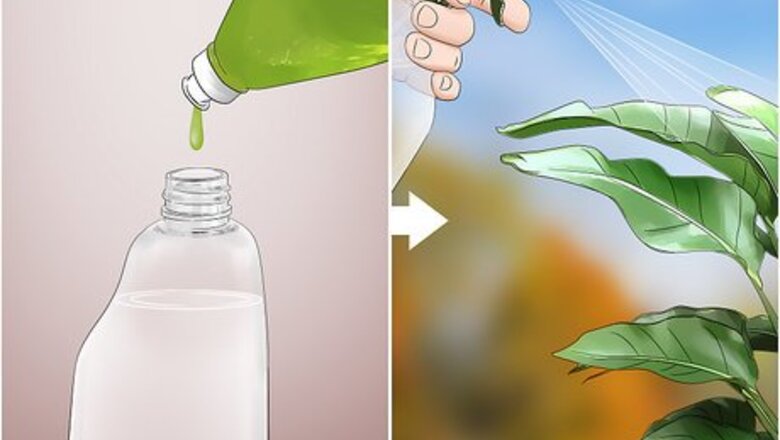
views
Killing Earwigs
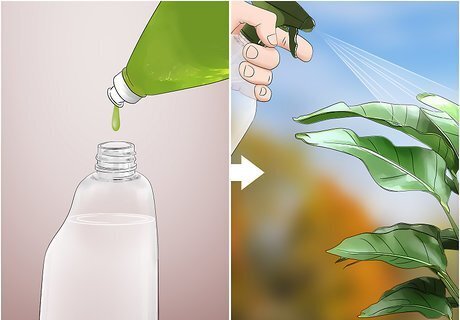
Spray a mixture of dish soap and water if you want to avoid pesticides. Fill a spray bottle with warm water. Add a few drops of dish soap and shake the mixture gently until it is soapy. Spray the leaves of your plant to kill earwigs, as well as damp corners of your home or garden where you have spotted the bugs. Do this whenever you spot earwigs in or around your home.
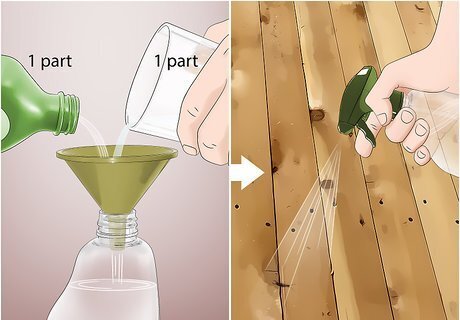
Make an alcohol-based insecticide spray to kill earwigs for fast results. Pour equal parts of rubbing alcohol and water into a spray bottle. Spray earwigs directly as you see them. The alcohol can penetrate the earwig's waxy coat of armour and kill it immediately.
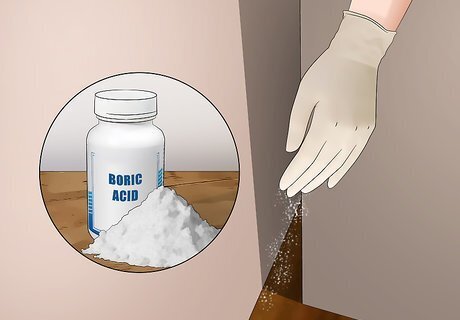
Sprinkle boric acid powder to kill bugs in areas you can't reach. Boric acid powder is a natural insecticide that kills earwigs on contact. Sprinkle the powder in spots that earwigs are likely to crawl through it, like alongside baseboards. Be sure to keep boric acid powder away from children and pets, who may be harmed if they come in contact with it. Buy boric acid at hardware stores or online. Use as much boric acid as you need as long as it remains out of reach of infants and animals. Boric acid powder can also be sprinkled around wood piles or in damp corners in your garden to target earwigs.
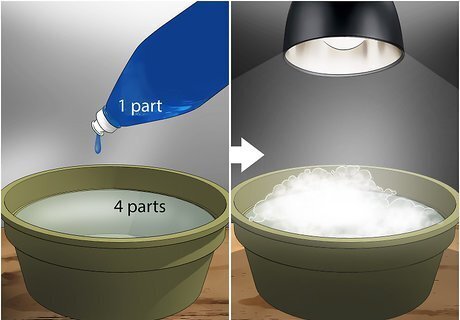
Make lighted earwig traps to kill earwigs outside at night. Fill a bucket with 4 parts warm water and 1-part dish soap and stir the mixture until it is foamy. Place the bucket outside with a lamp shining onto the surface of the soapy water. Earwigs will be drawn to the light and drown in the bucket. EXPERT TIP Scott McCombe Scott McCombe Pest Control Specialist Scott McCombe is the CEO of Summit Environmental Solutions (SES), a family-owned local pest solutions, animal control, and home insulation company based in Northern Virginia. Founded in 1991, SES has an A+ rating with the Better Business Bureau and has been awarded “Top Rated Professional,” and “Elite Service Award" by HomeAdvisor. Scott McCombe Scott McCombe Pest Control Specialist Our Expert Agrees: To kill earwigs, use glue traps, light traps, or targeted applications of dust, liquid, or aerosol insecticides.
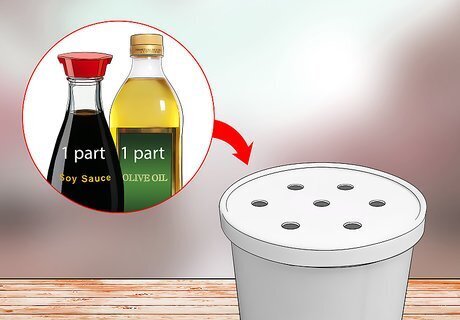
Make oil and soy sauce traps to catch and kill earwigs. Pour equal parts soy sauce and olive or vegetable oil in a plastic container. Make holes in the lid that are about 0.25 inches (0.64 cm) in diameter and cover the plastic container. The smell of the mixture will attract the earwigs and they'll crawl in and drown. The container should be about 1 inch (2.5 cm) full. If you are putting the trap in your garden, bury the container in the ground up to the lid.
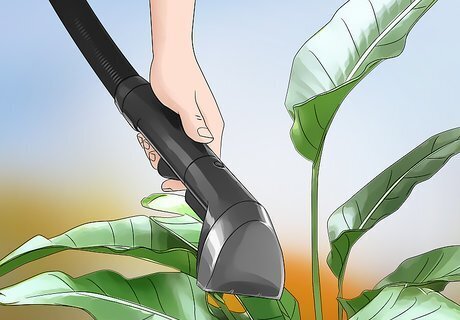
Vacuum up any large population of earwigs that you find. Deal with numerous earwigs concentrated in one area by capturing them with a vacuum cleaner. Suck up as many earwigs as you can and scour the area with the vacuum to try to collect any eggs that might be there. Dispose of the vacuum bag if possible or empty the vacuum into a bucket of soapy water to kill the earwigs. Prepare the vacuum before approaching the bugs to prevent them from scattering.
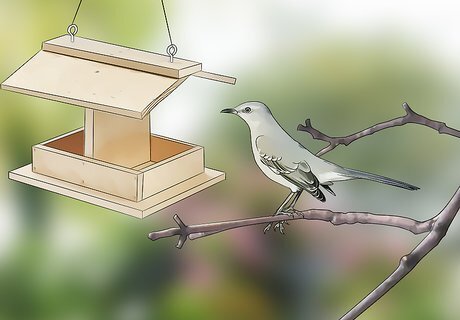
Draw birds to your garden to kill earwigs naturally. Birds are natural predators of earwigs. Attract birds to your garden by installing a bird feeder or bird bath to make the area appealing to them. You can also try planting berry bushes or fruit trees to entice birds.
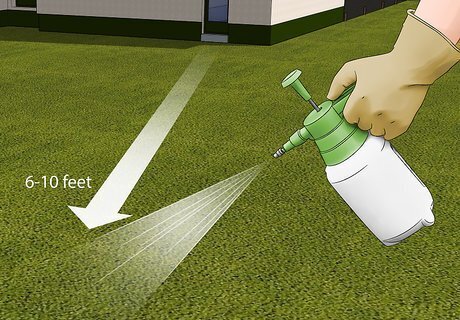
Apply an earwig pesticide about 6–10 feet (1.8–3.0 m) away from your home. There are numerous granule pesticides specifically formulated to kill earwigs. Apply one of these pesticides around the surface of your lawn and garden, leaving 6–10 feet (1.8–3.0 m) from the foundation of your home untouched. Spray your lawn with water immediately after applying the pesticide to help it seep into the ground where earwigs often lay eggs.
Keeping Earwigs Out of Your Home and Garden
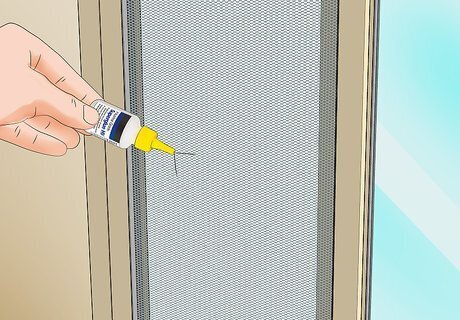
Repair any holes in your window screens to keep earwigs out. Earwigs can gain access to your home by way of tiny entry points on your window screens. Use superglue to patch up any small holes and tears on your screens. Fix any gaps that are bigger than 1 inch (2.5 cm) by gluing on patches of screen material using a strong adhesive. If your screen is very damaged, replace it entirely to prevent pests from entering your home. EXPERT TIP Scott McCombe Scott McCombe Pest Control Specialist Scott McCombe is the CEO of Summit Environmental Solutions (SES), a family-owned local pest solutions, animal control, and home insulation company based in Northern Virginia. Founded in 1991, SES has an A+ rating with the Better Business Bureau and has been awarded “Top Rated Professional,” and “Elite Service Award" by HomeAdvisor. Scott McCombe Scott McCombe Pest Control Specialist Taking steps around the outside of your home can help keep earwigs out. Remove any leaf litter or organic debris from around your home, and switch to an inorganic mulch like stone or recycled rubber. In addition, reduce or remove as many moisture sources from around as possible., and seal any visible entryways with screen, caulk, or expanding foam. Applying a pesticide around the perimeter of your foundation and a few feet out can be very effective at curbing earwig populations, as well.
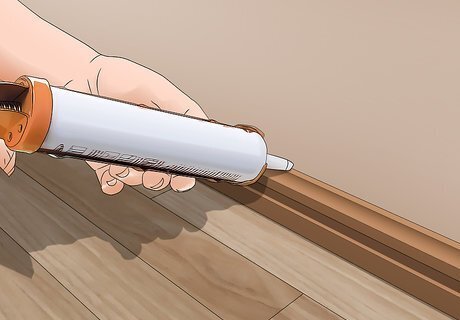
Fill in cracks and holes near entrances to your house with caulk. Earwigs are likely to gain access to your home through gaps around your doorways or windows. Use a caulking gun to fill in small gaps in these areas. Do this yearly to avoid unwanted pests from entering.
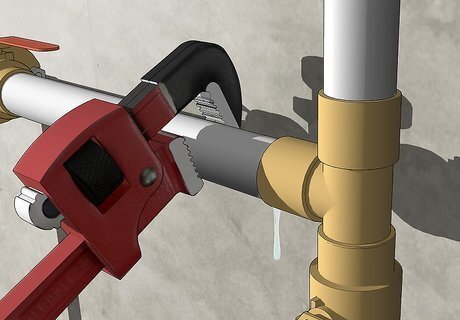
Fix leaking faucets or drains in and around your house. Dampness is the ideal condition for earwigs to live and reproduce. Prevent this condition by checking your water sources in the bathroom, kitchen, basement, and outdoors to make sure that there are no leaks. Fix leaking pipes on your own or call a plumber for assistance. EXPERT TIP Scott McCombe Scott McCombe Pest Control Specialist Scott McCombe is the CEO of Summit Environmental Solutions (SES), a family-owned local pest solutions, animal control, and home insulation company based in Northern Virginia. Founded in 1991, SES has an A+ rating with the Better Business Bureau and has been awarded “Top Rated Professional,” and “Elite Service Award" by HomeAdvisor. Scott McCombe Scott McCombe Pest Control Specialist Our Expert Agrees: Earwigs are drawn to moisture, so inside your home, try to maintain a controlled humidity of less than 60%. To do this, fix any leaks, water proof your home, and use a dehumidifier in humid conditions.
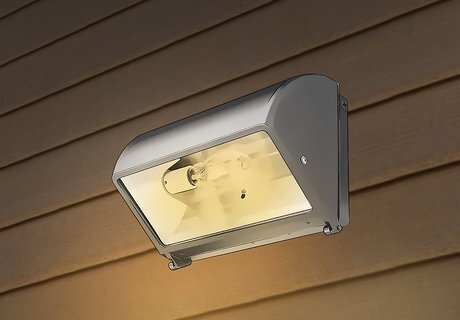
Use sodium lights instead of regular lighting outdoors. Most light bulbs emit a blue wavelength that attracts bugs. Sodium lights, which are often used as grow lamps for seeding plants, emit a more yellow hue. Replace light bulbs on your porch or around your windows with sodium light bulbs. Purchase sodium lightbulbs at hardware stores or online.



















Comments
0 comment